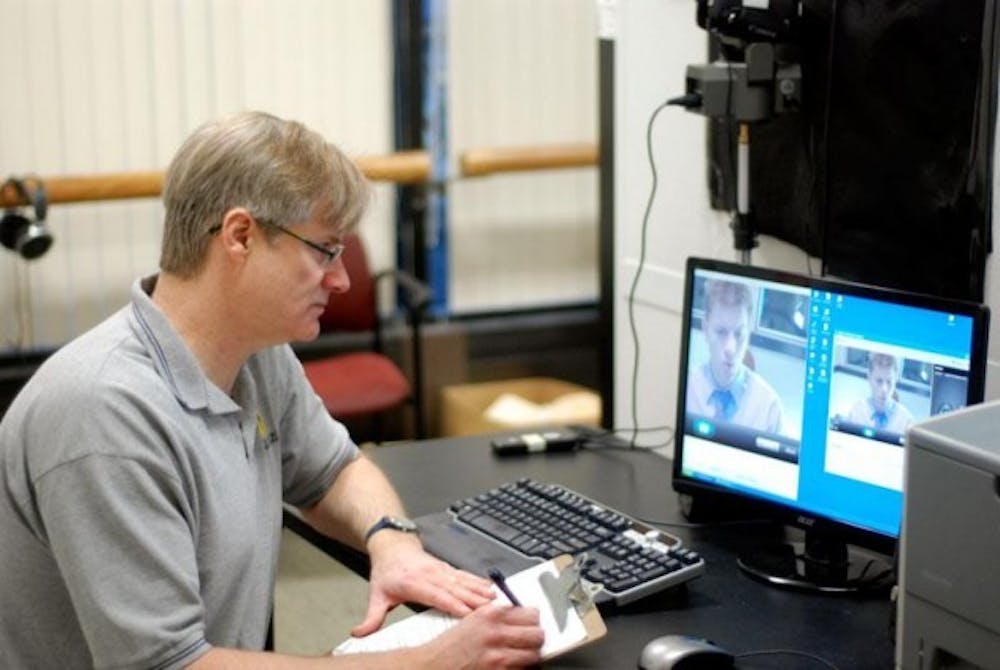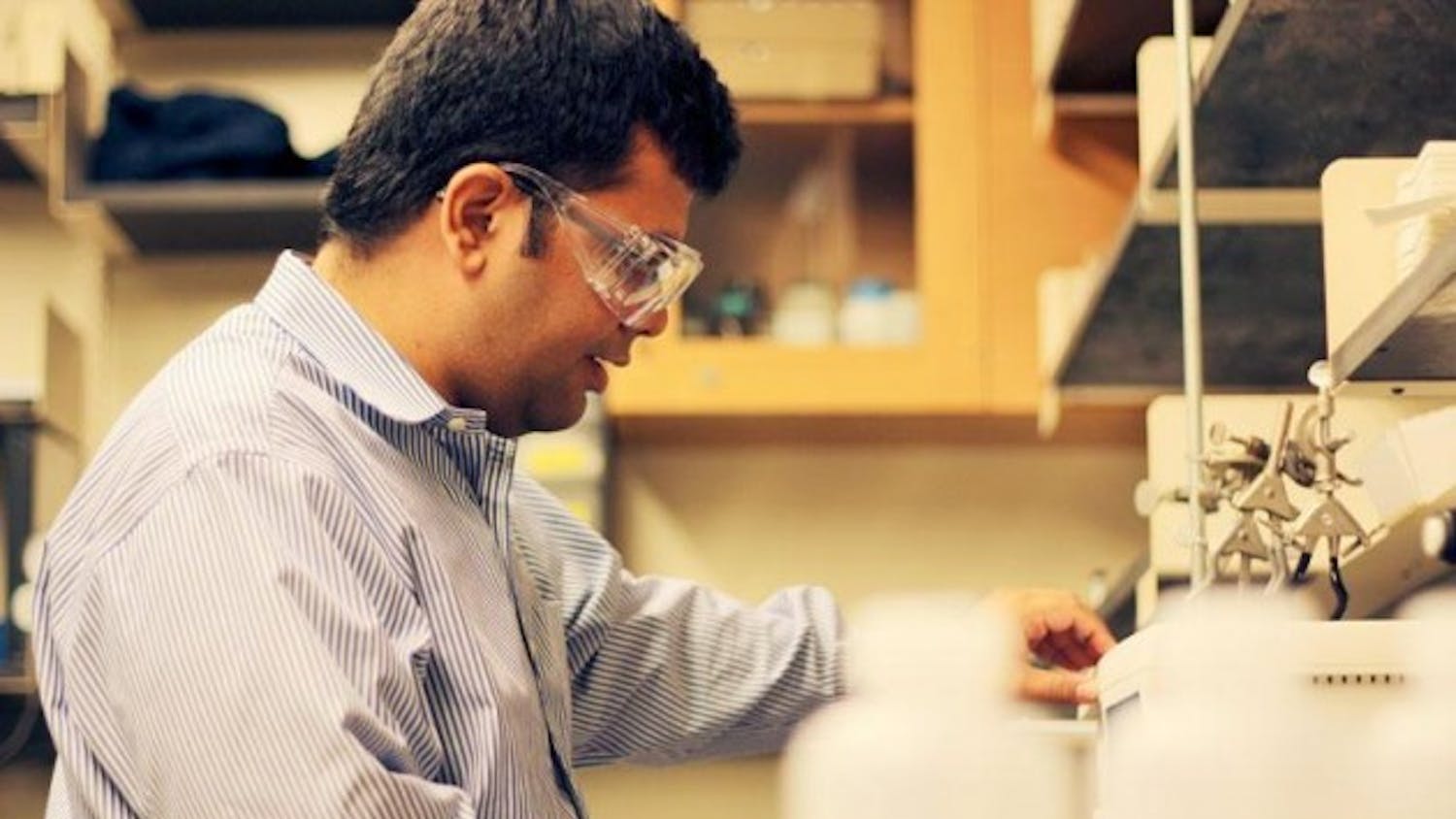Very few people can say a character in an award-winning television show is based off them.
Dr. Mark Frank can.
The FOX television series Lie To Me follows Dr. Cal Lightman and his team of scientists as they use their ability to analyze facial expressions and body language to help law enforcement catch and convict criminals. The show won the People's Choice Award for Favorite TV Crime Drama in 2011, according to IMDB.com. After three seasons, the series was canceled in 2011.
Lightman's character represents Paul Ekman, a prominent psychologist whose research focuses on emotions and facial expressions. The character of Lightman's assistant and lead researcher, Eli Loker, is based off Frank, the communication professor at UB, who studied under Ekman.
Ekman created the Facial Action Coding System (FACS), a method which scores facial behavior and is important for understanding human emotion. Frank studied under Ekman for several years and collaborated on his pioneering research. The system is one of few that are wholly anatomically based; it's not just based on impressions but on the muscles and where they go, as well as facial patterns, bulges and wrinkles, according to Frank.
However, he recognizes identifying facial expressions is not an exact science.
He uses micro-expressions to detect fear, anger, disgust and happiness, but he said that doesn't mean he can determine the reason behind it.
"If a person is questioned, it can have two outcomes: she is afraid because she is caught lying, or she is afraid of being disbelieved that she is telling the truth," Frank said. "We can never give the judgment of a lie. Nothing ever guarantees it's a lie."
Frank said he can only distinguish between truth and lies around 70 percent of the time, so he uses the micro-expressions more as an indicator there is an emotion trying to be concealed.
It began in a bar on Delaware Avenue in downtown Buffalo, where Frank discovered he had a knack for reading people.
He was a bouncer.
To earn some extra cash while working toward an undergraduate degree in psychology at UB, Frank worked on weekends and bartended during the week. The drinking age at the time in New York was 18 years old. He thought he got pretty good at interpreting behaviors and could determine who was underage and who was going to cause trouble.
His interest and skill in analyzing people's behavior followed Frank to Cornell University, where he completed his Ph.D. in social psychology.
"[Frank] was one of the most creative, imaginative students I have ever worked with," said Dr. Stephen Ceci, one of Frank's doctoral advisers at Cornell, in an email. "[He] would take an idea from the initial 'mulling' stage and bring it to fruition with little or no help from faculty, and he would do it fast as well as expertly."
It was clear to Ceci Frank possessed the drive needed to become a world-class scholar.
Prior to completing his dissertation, Frank was required to write an extensive paper and pass a lengthy oral exam on an assigned topic. One of his mentors, Dr. Daryl Bem, approved a topic Frank showed interest in: How good are we at reading people?
As Frank delved into his research, he uncovered the work of Paul Ekman and came to the conclusion that Ekman's theories matched most closely with his own interpretation.
Ceci knew Ekman and connected him to Frank. As they began interacting, Ekman said he liked the research Frank was doing and invited him out to University of California, San Francisco to do post-doctoral research. Frank was awarded a National Institute of Mental Health Research Service award and went out to California where Ekman taught him for three years.
"It was almost like going through graduate school again," Frank said. "[It was] all focused on the non-verbal, emotion and expressions, whereas most of my graduate school was about attribution theory and other mainstream social psych."
Frank then took a job at the University of New South Wales in Australia. A few years later, he was recruited to the communication department at Rutgers University in New Jersey.
Frank had only taken one communication course in his life - COM 101. He didn't know what to make of teaching in the communication department, but his research, nonverbal behavior and non-verbal communication, fit directly into the department.
Frank was then invited to come back to UB to join the communication department. He believes it was the right decision.
"I like the direction UB is going with a lot of stuff and with the research," Frank said. "Compared to a lot of [communication] departments, we're small but everybody is a good scientist here and is really fun to be around. They have the same kind of real science jobs and credibility and efforts. Pound for pound, when you look at the ways in which academics compare themselves, we're one of the best."
Frank teaches a higher-level undergraduate course in non-verbal communication and said seeing his undergraduate students grasping concepts and applying them "totally jazzes [him] up." He also serves as an adviser to many graduate students and enjoys working with them because it allows him to "get his hands dirty" by working on problems and research studies.
Elena Svetieva has had Frank as a mentor and primary research adviser for almost five years - first for her Master's degree and now for her Ph.D. in communication.
"In my experience, mentors can be either divas or producers," Svetieva said in an email. "A diva likes to be center stage, belting out their most loved songs and making demands on all those below them. Producers, on the other hand, work with your material to make it good. Dr. Frank is a producer - he is generous when it comes to sharing his knowledge and experience with students and he also is willing to work with students on developing and perfecting their own research ideas."
Svetieva noted that Frank was the reason she moved to Buffalo from Australia.
"I heard him give an interview on NPR back in 2007 and that's what inspired me to apply to the UB communication department," she said.
Frank tells his students a successful graduate-level student must have commitment and curiosity. He stresses the importance of critical thinking as a factor that contributes directly to one's success. Because nearly everyone today has access to the Internet, one should know how to access information but should, more importantly, know how to interpret it, he said.
Darrin Griffin, a communication graduate student, has come from Texas to pursue his Ph.D. in deception research under Frank's guidance.
"I have come from a faraway place from Texas to New York," Griffin said. "[Frank] took me under his wing. He is one of the few people with whom I feel as if I am home away from home. "
Frank conducts his lectures in a patient manner, making it fun by telling various stories and making it interactive, according to Griffin.
"As a person, the first thing you will notice about him is that he is very intelligent, witty, smart and knows about science and psychology," Griffin said. "He is well versed in deception research and is quick and entertaining. He shows that passion to all the students."
Although Frank enjoys teaching, he is a researcher at heart.
"You're always finding something new - that's the thing that makes science so cool," Frank said. "Sometimes you find stuff that no one else has ever known before."
He is currently working on several projects that extend FACS into broader areas. He is also working to understand people's preferences - looking at different substances, smells and fragrances - and pain, such as studying how an individual with sensitive teeth would react to drinking cold water.
"Dr. Frank may be rigorous and methodical when it comes to research, but he is also an immensely funny, kind and collegial professor," Svetieva said. "He respects us as his students and advisees and looks out for us both in terms of professional and personal development."
The system takes about 100 hours to master, but Frank stresses the use of FACS is often exaggerated in Lie To Me. He describes the system as "nothing overly magical." Frank also appears very modest when discussing his collaboration with various federal authorities and his extensive travel to give talks. He prefers to prioritize his family and does not let his fame and extensive knowledge in his field affect his humble attitude.
"Dr. Frank had once told me a story about his undergraduate times where he said he knew how it was like to be student," Griffin said. "When he was a kid, he had to sell the dollar chocolate candy bars to earn money and it was very difficult for him during those times. But now as an adult when he sees kids approaching him for buying the dollar candy bars, he buys them no matter what; he might not eat them himself but give it to someone else. He says it reminds him of the old days."
Deception may be an art in Lie To Me, but to Frank, it is a science he enjoys.
email: features@ubspectrum.com





